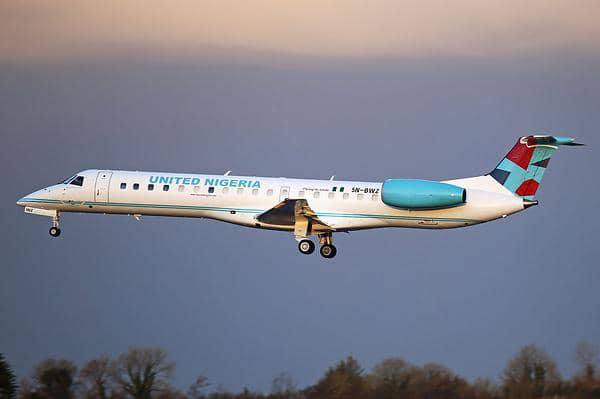Travellers in Nigeria may soon benefit from lower airfares following the drop in the price of Jet A1, the fuel used by airlines.
As reported by the PUNCH, the Dangote Petroleum Refinery announced on Tuesday a further price cut for diesel and aviation fuel, with the new rates set at N940 and N980 per litre, respectively.
This reduction has sparked hopes among airline representatives, travel agency leaders, and frequent travellers for a potential decrease in airfares.
The President of the Association of Foreign Airlines and Representative in Nigeria, Kingsley Nwokoma, highlighted the importance of aviation fuel in determining ticket prices.
“Normally, airfares would drop because aviation fuel is a big component. When you put all the financial components together that make up your ticket, it’s a very significant factor,” he said.
Nwokoma noted that the reduction might be linked to the presence of Dangote refinery and stressed the need for a holistic approach to understanding its impact on ticket prices.
“If truly there is a reduction in the price of Jet A1, then ticket prices must come down because Jet A1 is a major component in operational costs and the cost of tickets.”
United Nigeria Airlines spokesperson, Achilleus Uchegbu, shared similar sentiments, stating that everyone expects airfares to drop with the reduction in aviation fuel prices. “Although I do not know how soon the price drop will happen, we are hopeful,” he said.
Also speaking with the PUNCH, the President of The National Association of Nigeria Travel Agencies, Susan Akporiaye, pointed out the potential benefits of lower airfares.
“The expectation is for the fares to drop, and it will result in more people travelling, which gives my members more tickets to issue, increasing income,” she said.
Frequent air traveller and CEO of Prestige Pharmacy, Sandra Ebele, welcomed the news, noting the positive impact it could have on businesses and passenger affordability.
“As a frequent air traveller, I’m thrilled to hear about the drop in aviation fuel prices from N1,400 to N980. This should lead to lower operating costs for airlines, which could translate into more affordable ticket prices for passengers and business owners like me, which will, in turn, affect my business,” she said.
However, Ebele cautioned that reduced fuel costs might not immediately result in lower ticket prices due to other factors like demand, competition, and operational expenses.
Another frequent traveller, Ifeanyi Samuel, expressed a similar perspective, emphasizing the complexities of airline operations.
However, he is optimistic about the potential positive effect it may have throughout the industry.
“It might even inspire airlines to add new routes or increase the frequency of existing ones, which would offer greater flexibility for my business travel need.”
“Also, I’d like to add that at least I get to save more from the money I should have budgeted for a plane ticket anytime I have a business appointment,” he said.
SOURCE: PUNCHNG











